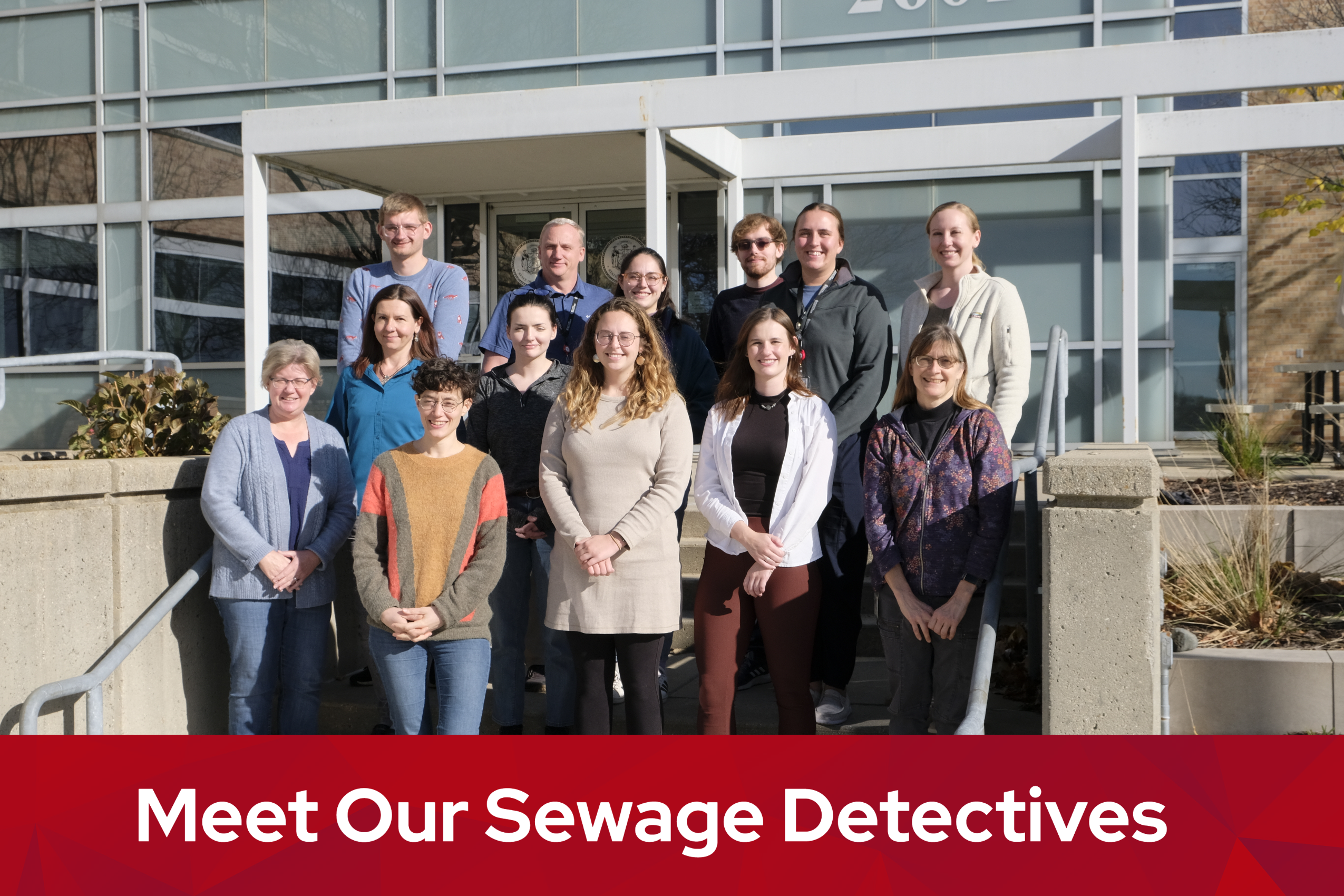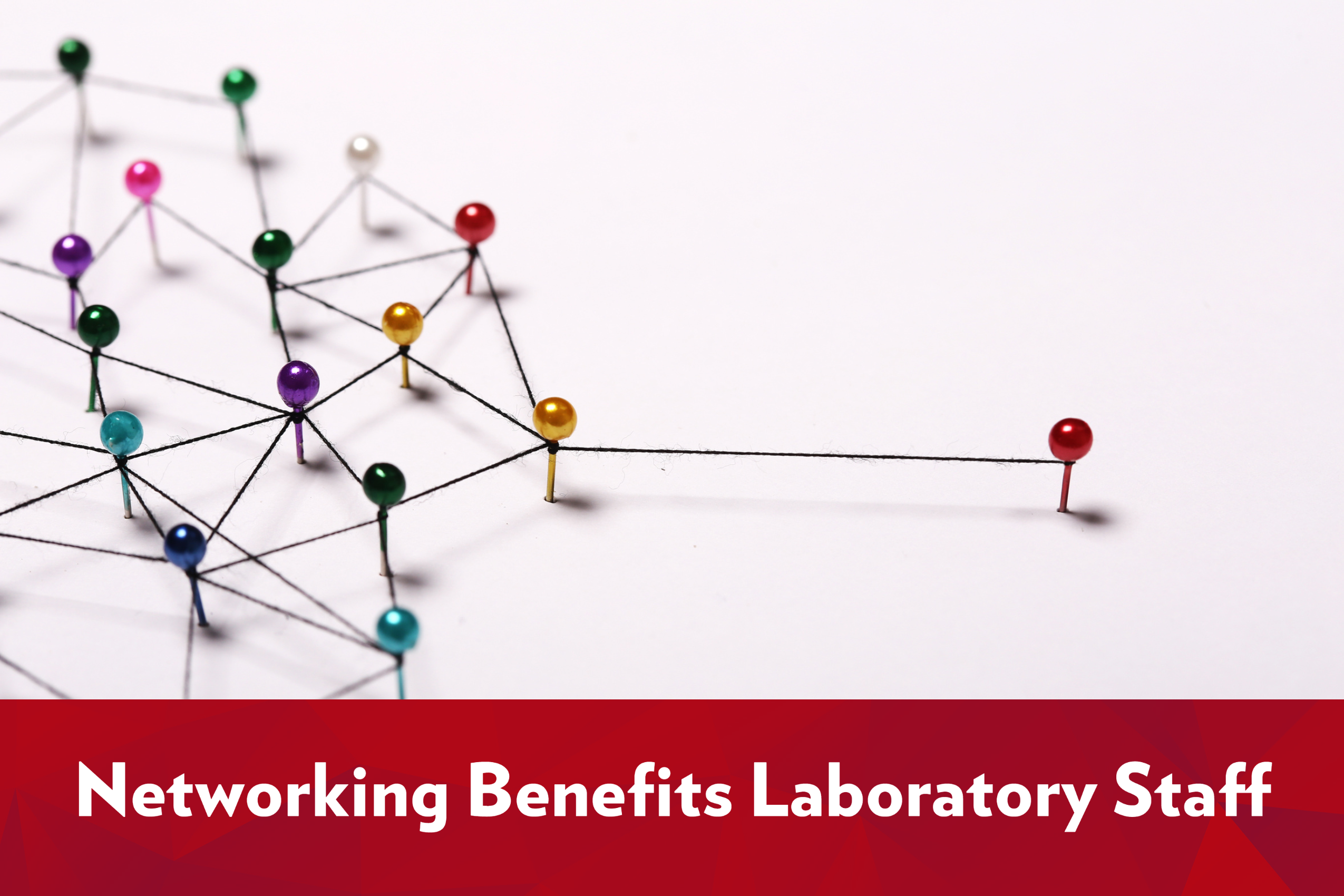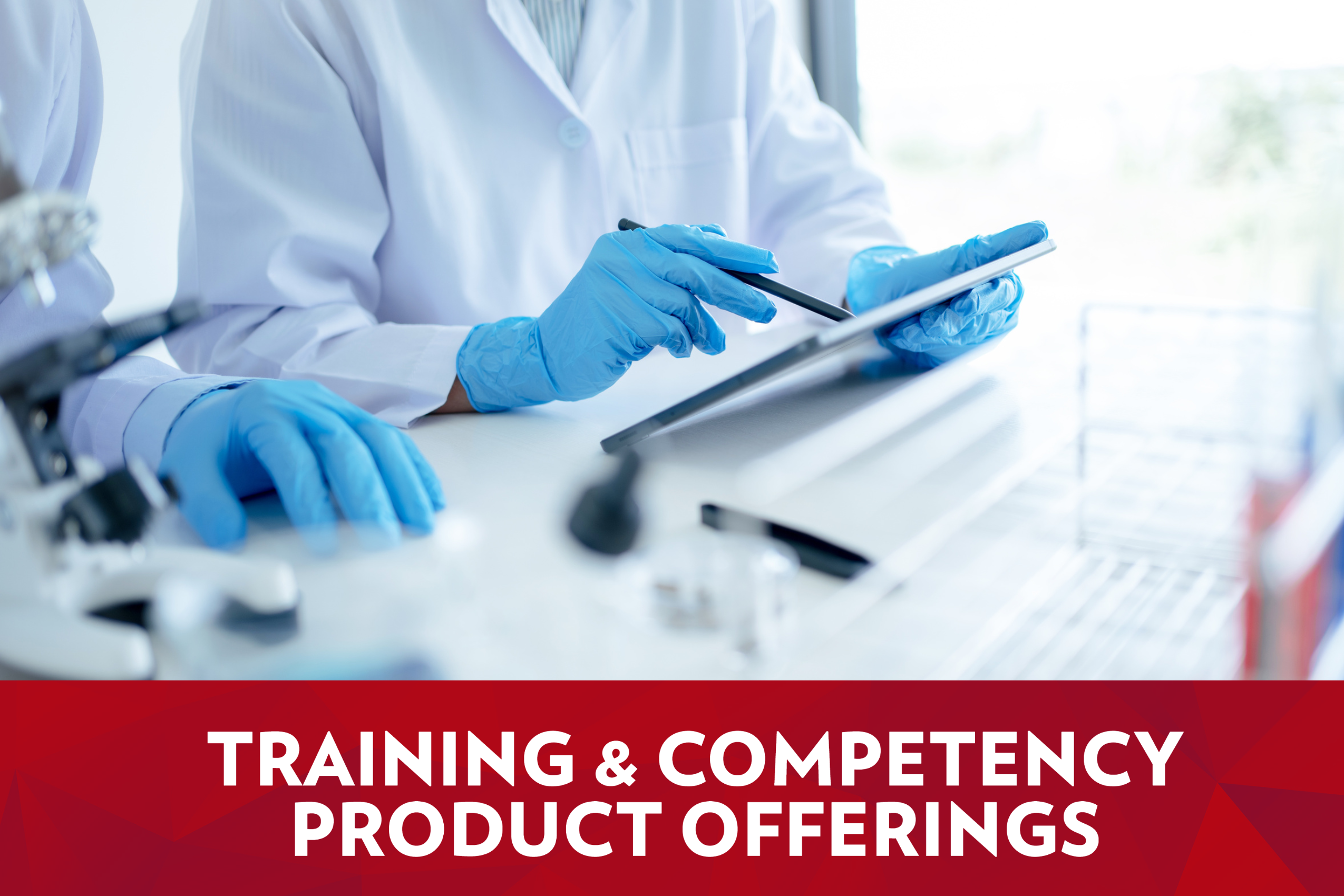WSLH PT Blog
Bringing you clinical lab features, news, and updates via the WSLH PT Blog! If you are interested in receiving an email digest of news along with curated staff picks from around the internet, sign up for WSLH PT’s monthly newsletter, The MedLab Retriever.
Underscoring the need to increase public access to Hepatitis C screenings, the CDC has provided updated information on how to ensure screenings are complete and accurate. Historically, about one-third of all individuals tested for HCV did not receive an HCV RNA test, when the HCV antibody test was reactive. In July 2023, the CDC released updated operational guidance, emphasizing the need to standardize Hepatitis C screenings in the United States. The CDC provides data indicating that reflex testing requiring single-visit sample collection resulted in higher rates of accurate diagnosis of Hepatitis C. While guidance on the implementation of reflex testing has helped clinical laboratories make significant steps toward achieving national HCV elimination goals, there are many communities that still face barriers to obtaining accurate and complete Hepatitis C screenings. These barriers include a lack of screening protocol, dedicated full-time staffing, and staff competency requirements. The CDC does provide an alternative recommendation, for instance, when following their HCV operational guidance is not attainable:
“If HCV RNA testing is not feasible and a person tested is not immunocompromised, do follow-up testing for HCV antibody to demonstrate seroconversion. If the person tested is immunocompromised, consider testing for HCV RNA.”
The inability at this time to uniformly implement reflex testing or needed follow-up HCV RNA testing across all communities in the United States is underscored by a recent study in diagnostics. This study compares the diagnostic accuracy of Point-Of-Care (POC) HCV viral load assays to laboratory-based testing, concluding that POCT HCV viral load tests are very accurate. This study aligns itself with the World Health Organization’s (WHO) recommendations to use POC HCV viral load assays as an additional strategy to promote access to confirmatory viral load testing and treatment. Given that capacity at the local and state levels can vary widely in the United States, there may be more studies and guidance to help communities, particularly rural communities, similarly negotiate limited access to laboratory services.
As HCV screening volumes trend upward, one barrier to diagnostic testing is assuring staff competency. To address these barriers, the CDC outlines recommendations such as who to test, when to test, how to interpret results, and proper documentation. Depending on your role and protocol in your state, passing proficiency may be required before administering Hepatitis C waived antibody tests. For instance, in the state of New Mexico, nurses and other certified staff must complete training with a passing competency prior to administering a Hepatitis C waived antibody test, such as the OraQuick HCV Rapid Antibody Test. The New Mexico example illustrates the importance of setting goals and standards to assure healthcare staff receives training prior to administering a HCV-waived antibody test. Participating in proficiency testing programs that are compatible with all waived methods is one way that all healthcare professionals conducting Point-of-Care (POC) testing can assure accuracy in testing and documentation of results.
To ensure that all participating healthcare professionals maintain competency in conducting and interpreting the results of HCV POC tests, laboratories and other medical facilities enroll in HCV proficiency testing programs. WSLH Proficiency Testing is now offering the Hepatitis C waived proficiency testing program for 2024. This program is compatible with waived methods including OraQuick HCV Rapid Antibody Test, and includes three 1ml liquid serum samples shipped twice per year. The soaring demands for Hepatitis C diagnostics require a strategic and steadfast approach. Prepare your staff with our Hepatitis C waived proficiency testing program, Item PT04192. View our Clinical PT Catalog and Ordering page for more details.
With the growing need for Hepatitis C diagnostics, it is crucial to implement a well-planned and consistent strategy. As public health organizations, laboratory experts, and the broader healthcare systems come together, our progress toward reliable, precise, and early HCV detection relies on the solid foundation of clinical proficiency testing. In this dynamic landscape, WSLH Proficiency Testing’s commitment to provide quality proficiency testing services and to improve staff competency in HCV antibody testing remains unwavering. By implementing standardized procedures and continuous quality evaluations, we can pave the way for enhanced HCV management and, ultimately, contribute to better global health outcomes.
WSLH PT Blog
Bringing you clinical lab features, news, and updates via the WSLH PT Blog! If you are interested in receiving an email digest of news along with curated staff picks from around the internet, sign up for WSLH PT’s monthly newsletter, The MedLab Retriever.
Each year before enrollment, Julie Steele and her staff review and compare clinical proficiency testing product catalogs side-by-side to determine which programs are the best fit for their laboratory. Assessing testing needs and reviewing program offerings is an ongoing process to find the best fit for her laboratory. Julie explains that using two PT providers helps her find more options that meets her laboratory’s needs.
”For instance, say you’ve got all your PT results submitted, and the report shows that all of them have shifted to the low end. Then, you can use the same test from another PT provider to further investigate and compare. We certainly have ordered the same test with CAP and WSLH Proficiency Testing to compare the results from each test,” said Steele.
Enrolling with one proficiency testing provider as your primary provider for score transmission purposes and another PT provider for the same analyte or test for quality assurance or troubleshooting purposes puts your lab in a better situation should you encounter PT failures and need to quickly address them. Julie Steele’s relationship with both PT providers assures that she has quick access to ordering available samples off-schedule or for quality assurance. To prepare your laboratory, consider contacting another PT provider about ordering such samples before you encounter certain testing scenarios.
Regarding a laboratory’s cost-effectiveness goals, Julie Steele says that enrolling with two PT providers every year has helped her laboratory keep costs down as much as possible. Cost-effectiveness is crucial; so, carefully evaluate pricing models, annual processing fees, and other indirect costs such as allotting staff time for testing when budgeting for PT enrollment. Consider the overall value provided by each provider in terms of the quality of the program and the level of support offered.
“When you are spending thousands of dollars every year on proficiency testing samples, you take cost into consideration. WSLH Proficiency Testing is a lot more reasonable when evaluating cost-effectiveness,” Julie says. She adds that cost comparison is important, but also emphasizes the importance of carefully reading the PT provider’s sample handling instructions in order to avoid the unexpected costs that come with ordering any available replacement samples.
Conclusion:
This article presents some of Julie Steele’s strategies employed at her laboratory to help decision-makers who are considering enrolling in two or more PT providers. When choosing one or more PT providers, assess your laboratory’s needs, consider testing offerings and frequency, and compare pricing and cost-effectiveness. With a closer look at one lab manager’s strategies, we take into account several other reasons that having a secondary PT provider is beneficial.
Enrolling with Two PT Providers by Regulated and Non-Regulated Analytes
Enrolling in two PT providers a year can help laboratories organize their testing programs in other cost-effective ways. For instance, some laboratories choose to enroll with one PT provider for all of their regulated analytes. They then choose to enroll with a secondary PT provider for their non-regulated analytes. For some laboratories, depending on their needs, separating their regulated and non-regulated analytes by PT provider makes it easier for them to manage their proficiency testing.
Using Multiple PT Providers for Transitional Periods
Intentionally enrolling in the same challenge with two different PT providers can help during transitional periods or staff changes. Laboratories may experience a loss of PT knowledge when a staff member or manager retires or moves.
Accreditation and Accepted Analytes:
Please make sure the selected provider(s) are:
- Approved by CMS.
- Accepted by the College of American Pathologists (CAP) – If your lab is accredited by CAP.
Additional resources:
CMS list of non-waived testing that requires PT: https://www.cms.gov/regulations-and-guidance/legislation/clia/downloads/list-of-non-waived-testing-which-pt-is-required.pdf
FAQs about the Clinical Laboratory Improvement Amendments (CLIA) for Proficiency Testing:
https://www.cms.gov/Regulations-and-Guidance/Legislation/CLIA/Downloads/CLIAbrochure8.pdf
WSLH PT’s overview of proficiency testing: https://wslhpt.org/wp-content/uploads/2023/02/WSLHPT_Handbook_rv.02.2023.pdf
WSLH PT Blog
Bringing you clinical lab features, news, and updates via the WSLH PT Blog! If you are interested in receiving an email digest of news along with curated staff picks from around the internet, sign up for WSLH PT’s monthly newsletter, The MedLab Retriever.
Strategies, Resources, and Benefits for Clinical Laboratory Professionals
In the fast-paced and demanding field of clinical laboratory medicine, building a strong support network is crucial for the success and well-being of professionals. Support networks, comprising colleagues, mentors, and industry peers, offer a multitude of strategies and resources that are beneficial to professional growth, knowledge enhancement, and overall career satisfaction.
In a previous article, WSLH Proficiency Testing has explored making connections with peers through networking events, such as attending conferences and seminars. Certainly, these recurring annual events provide us the space to engage in conversations, share experiences, and exchange contact information to cultivate meaningful connections. However, sometimes our unique role, a transitional phase, or a new laboratory setting can make it challenging to find the support we need.
In this article, we broaden our focus on building a professional support network as a clinical laboratory professional. Through an exploration of effective strategies, we highlight valuable resources and outline the significant benefits creating a professional support network brings.
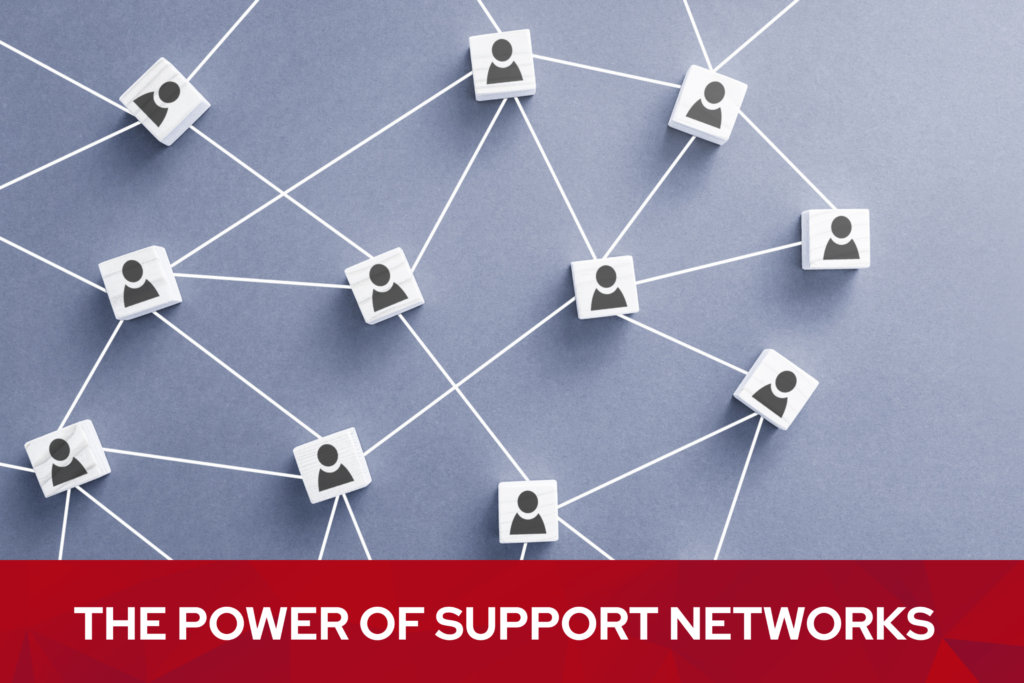
Online Learning Communities: Getting connected with others through sharing knowledge and expertise is a wonderful way to build a network of support for yourself as a laboratory professional. Join professional forums, social media groups, and other online platforms dedicated to clinical laboratory professionals. Professional associations such as ASCLS and AACC have discussion forums accessible to members through login-based access on their websites. On LinkedIn, professional associations such as ASCP, ASCLS, and ACCC have listed groups as well as industry media like the Medical Laboratory Observer and Lab Manager Magazine.
Webinars can also offer a setting where you can make connections with peers and industry experts. During a webinar, when someone is asking or sharing questions that are relevant to your laboratory’s needs, consider sending them a message if a chat feature is enabled. You can request that you can reach out to them about a similar issue you are having. Sometimes finding support outside of your workplace can provide you and your laboratory with the insight needed to create needed shifts in your practices and policies. It’s also wonderful to know that you have another person who is willing to talk through issues with you, and is just one email or call away.
Mentorship Programs: Mentor-mentee relationships can also be another beneficial dimension of your overall professional support network. Mentorship relationships help professionals gain insights, receive career advice, reduce workplace stress, and expand professional networks. There are professional associations that also have mentorship programs that create an excellent structure for mentor/mentee relationships to form. For example, when you apply with the ASCP Mentorship Program or ASCLS Mentorship Program, you gain access to their Mentorship Directory based on specific skills and experience. From there, you can request meetings to explore a mentorship relationship with potential mentors/mentees.
Workplace Engagement: Getting to know your team better is an important, often overlooked practice in building a support network to reduce burnout and maintain staff engagement. According to a recent article in Forbes, organizations have cited employee experience and mental health as the difference makers in improving engagement, retention, and productivity. While mental health comes with limitations with respect to worker privacy, laboratory managers can ensure steps are taken to improve employee well-being.
While it is not crucial to be best friends with all of our coworkers, having friendships and fostering social connection in your work life is one key factor to overall employee well-being. Forming engagement committees at work to foster social connection can be beneficial to improving social well-being, a key aspect of employee well-being overall. As a division of the Wisconsin State Lab of Hygiene, WSLH Proficiency Testing participates in our laboratory’s engagement committee, hosting weekly and monthly board game meet-ups, annual picnics, and sporting event outings to name a few.
Conclusion
The challenges of the clinical laboratory profession can be overwhelming. Building a support network is an invaluable investment for clinical laboratory professionals. As clinical laboratory professionals navigate their careers, a strong support network becomes an essential pillar of success, leading to personal fulfillment and the advancement of the field as a whole.
A support network facilitates knowledge sharing, emotional support, career advancement, collaboration, and professional development. Colleagues and mentors can provide valuable advice and share experiences to help navigate professional challenges. By adopting effective strategies, leveraging available resources, and actively engaging with colleagues, mentors, and industry peers, professionals can foster collaboration, inspires new ideas, and drives professional growth to effectively meet and exceed organizational goals.
WSLH PT Blog
Bringing you clinical lab features, news, and updates via the WSLH PT Blog! If you are interested in receiving an email digest of news along with curated staff picks from around the internet, sign up for WSLH PT’s monthly newsletter, The MedLab Retriever.
Are you planning to attend a conference later this year?
Perhaps you, like us, are preparing to travel to California for the AACC Annual Scientific Meeting at the end of July. If you haven’t had a chance to discuss attending this or another conference with your supervisor or staff, there’s still time to make plans (even if the conference is two months away). When it comes to planning travel for a conference, it’s best to make most decisions 2-3 months prior to the departure date.
So, there is still time to attend a national clinical laboratory conference or large regional meeting this year if you’re interested. In this article, we have provided 4 tips and considerations for those planning to attend a clinical laboratory conference.

- Check for early-bird discounts: People do not want to miss out on a deal, and conference planners know this. Planners of larger conferences want people to register early to get an idea about event turnout or will want to pay for certain conference planning costs upfront with registration fees. That is why planners will offer discounts for early registrations, also known as the “early-bird” discount.
Larger clinical laboratory conferences will typically have an early registration period during the first month after registration opens. For instance, if you register for the “Extra Early Bird” rate for the ASCP Annual Meeting by June 30th, you can save up to 50% of the regular rate.
In turn, the early-bird discount can help potential attendees start a conversation with staff or supervisors about going to a conference. However, if you missed an early-bird rate for registration, do not sweat it. You can still save time and money in other aspects of your conference planning, like taking advantage of grants, scholarships, and free offerings.
2. Take advantage of grants, scholarships, and free offerings: For those seeking assistance with conference registration and travel costs, sometimes scholarships and free offerings will help us keep our expenses well within our budget.
Each year, the American Society for Clinical Pathology (ASCP) offers travel grants for those seeking financial assistance to attend the ASCP Annual Meeting held in the fall each year. To be considered for the grant, candidates must submit their applications in the spring. This year, the deadline was May 1st. To learn more, visit ASCP’s Grants and Scholarships webpage.
Also, did you know there will be 800+ vendors at the AACC Clinical Lab Expo in Anaheim, California this year? Visit our calendar event page to get your Complementary Clinical Lab Expo pass to the premiere global laboratory medicine exposition. Be sure to stop by our booth #2932 and say hello!
3. Find flight deals on airline tickets: There is good news for those who tend to procrastinate in their travel planning. Self-conducted studies by Expedia and Google reveal that you could be missing out on good flight deals if you book too far out in advance. The findings of these two studies combined indicate that the best time to book a flight is about 1-1.5 months before departure. Expedia narrows down this timeframe to 28-35 days, while Google’s study found that prices started dropping 44 days before departure.
Start discussing your team’s attendance at an out-of-state conference 2-3 months in advance so you have enough time to book a flight and take advantage of flight deals. Create a hard deadline during your discussions so you do not wait until the last minute to book. Try not to book less than 21 days before departure, if possible.
4. Try using the conference app: As you continue to receive updates and emails from laboratory conference planners, we direct your attention to the conference app. Oftentimes, mid-size to large conferences will provide attendees with an app to download to their mobile or tablet device. Depending on the app provided, you can access many helpful features, such as:
- Electronic copies of the conference schedule, list of speakers, and venue map. You can also choose to receive notifications and updates on the schedule from conference coordinators in real time.
- In-app networking: connect with attendees, message them, send them pdf files, and schedule meetings. Some apps will also provide social media integrations or an in-app social media platform to post your images, thoughts, and other updates with attendees.
- Participate in interactive aspects of the in-person event, such as submitting questions for formal Q&A segments of presentations and panel sessions within the conference app on your phone.
There are some hidden benefits to using the mobile application that conferences provide. Giving yourself some time to download and explore the app before you depart for your conference can give you a better idea of how useful it would be to you. You can always delete it when you are done.
While none of us want to wait until the last minute to prepare, there is some evidence that planning far in advance does not always assure we will get the best deals. Gathering more information about tips and strategies that work well for others throughout the year gives us plenty of time to find the planning practices that work best for us. The 3 tips we have provided here come from a blend of research and experience in conference planning for attendees and exhibitors. If you are planning to attend any clinical laboratory conferences this summer or fall, we encourage you to stop by our exhibitor booth and say hello to a WSLH PT staff member. Visit our Conference Schedule page online to view the list of conferences we will be attending.
If you have any other conference planning tips to share with others, please let us know. We would love to share your ideas in a future newsletter or blog post. You can contact us by emailing WSLH PT at ptservice@slh.wisc.edu, or by filling out our Contact Us webpage. Happy conference planning!
WSLH PT Blog
Bringing you clinical lab features, news, and updates via the WSLH PT Blog! If you are interested in receiving an email digest of news along with curated staff picks from around the internet, sign up for WSLH PT’s monthly newsletter, The MedLab Retriever.
Vicky Norrish and her path to laboratory management
When Vicky Norrish was 15 years old, she was in a near-fatal car accident. Needless to say, she spent a lot of time that year in the hospital. From bedside care to having her blood tested, her journey to healing instilled in her a passion for healthcare. By the time she was ready to graduate, Vicky had a broad understanding of all individual roles involved in caring for a patient. She had contemplated pharmacy school, but took a microbiology class in college and fell in love with science. It was this love that would bring her to the world of laboratory medicine.
“I knew the lab was a perfect fit for me. I could still work in healthcare and help people in a way that brought me a lot of life satisfaction, said Vicky.” Today, Vicky Norrish, MLS (ASCP), CHC serves as the Director of Regulatory Compliance and Laboratory Services for Grinnell Regional Medical Center (GRMC) of the UnityPoint Health system in Iowa.
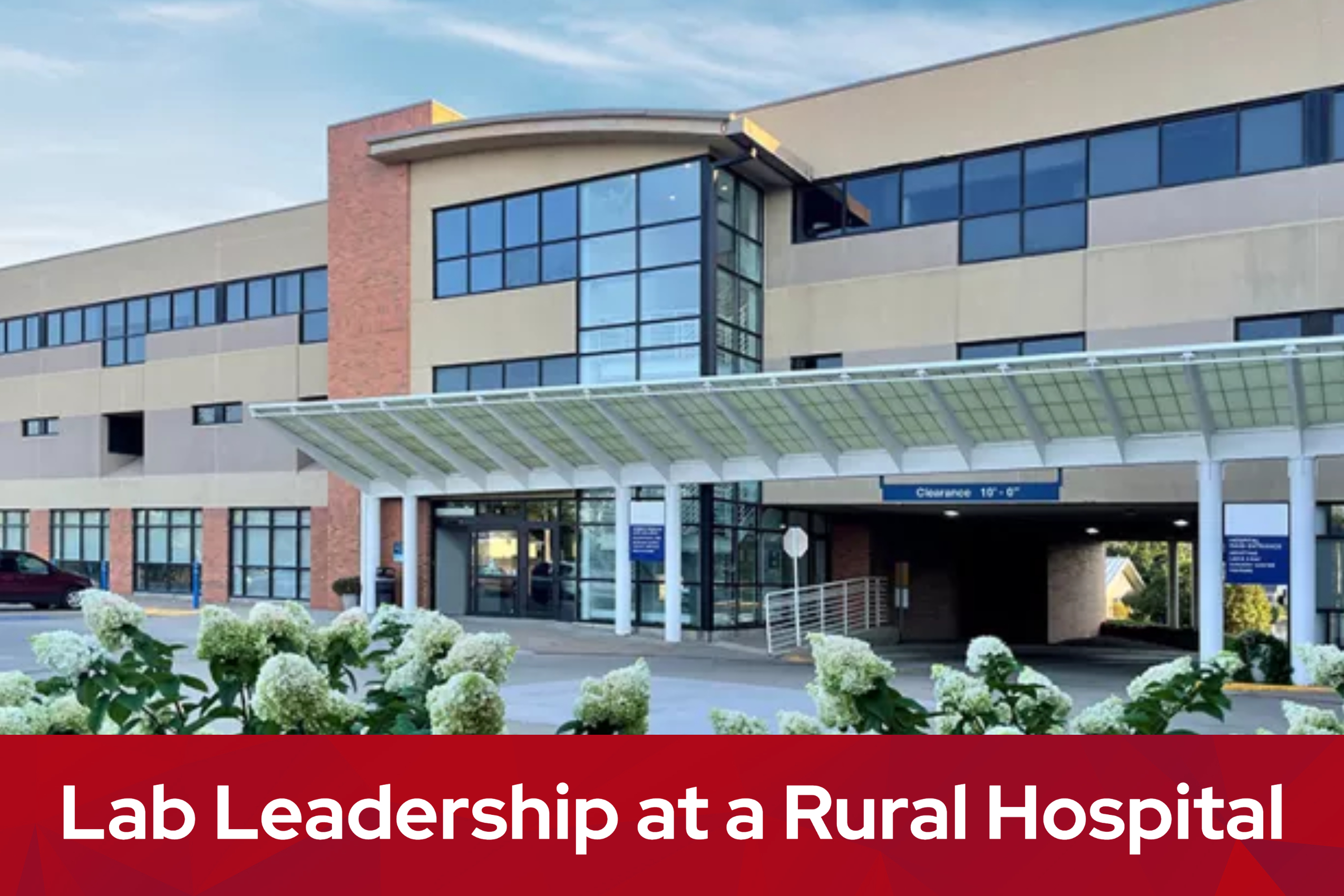
When Vicky started as a bench generalist, there was a job opening in infection prevention at the hospital. It was a sign, she thought, to try something different. She convinced the hospital that they needed to hire a laboratorian for the job rather than a nurse. Vicky did not expect that her 10 years of work in infection prevention would morph into the quality management work she does today.
Carving Her Unique Path to Laboratory Management
As Vicky progressed through her career, she took on different roles and responsibilities. Her extensive experience in compliance, regulatory accreditation, and HIPAA privacy procedures led her to GRMC as their compliance leader. During that time, the hospital posted an opening for a laboratory director. Vicky saw this as a sign to marry the two kinds of work that she really enjoys: laboratory and compliance.
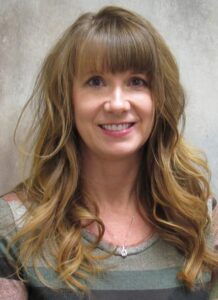 Serving in a rural hospital gave Vicky a fairly unique career trajectory to her role today. From drawing blood to managing the front desk, Vicky eventually found her own cadence in this unique position of being both a laboratory manager and a regulatory compliance professional. She also has a lengthy list of unexpected responsibilities, such as overseeing the occupational medicine department and contracted services, like food and nutrition and the sleep lab.
Serving in a rural hospital gave Vicky a fairly unique career trajectory to her role today. From drawing blood to managing the front desk, Vicky eventually found her own cadence in this unique position of being both a laboratory manager and a regulatory compliance professional. She also has a lengthy list of unexpected responsibilities, such as overseeing the occupational medicine department and contracted services, like food and nutrition and the sleep lab.
“Combining these two roles was a little daunting at first but worthwhile,” said Vicky. “My work keeps me challenged and I get to do something different every day. That’s exciting to me. The staff I have are high performers. So, I really just have to go be their biggest cheerleader and supporter.”
A Great Quality Assurance Practice
What helps her staff maintain a solid quality assurance process is documentation, specifically a system of accountability checklists. Each laboratory and department area has its own unique schedule of tasks to remember, from maintenance to documenting everything properly. To help create a seamless workflow within each of her departments, Vicky created these checklists for all areas of the laboratory and each checklist includes daily, weekly, monthly, and quarterly responsibilities.
“You know, I wasn’t really sure if I was going to receive complaints from staff after implementing these checklists, but it turns out people really seem to like them,” said Vicky. She found that it helped everyone be more successful at their job, knowing exactly what they need to accomplish at the start of their shifts. She adds that it is important to make sure your staff feels supported.
Finding Your Laboratory Management Network
Throughout Vicky’s time as a laboratory manager, she has found a strong network of managers at other laboratories that support each other. She advises that if you are new to laboratory management, connect with the managers at laboratories in surrounding communities. Creating a network of support is important, especially in staffing challenges where you yourself are figuring out your workflow as a laboratory manager.
Helpful Laboratory Management Links
For resources on laboratory management and training support, visit some of the following sites:
Lab Manager: labmanager.com
American Society for Microbiology: A Day in the Life of a Lab Manager or Supervisor
CDC Laboratory Training: OneLab Reach
Wisconsin Clinical Laboratory Network: https://www.slh.wisc.edu/wcln-surveillance/wcln/
WSLH PT Training and Competency: https://wslhpt.org/mls-competency-ce-courses/
American Association for Clinical Chemistry (AACC): New Paths to Leadership for the Clinical Laboratorian
.
WSLH PT Blog
Bringing you clinical lab features, news, and updates via the WSLH PT Blog! If you are interested in receiving an email digest of news along with curated staff picks from around the internet, sign up for WSLH PT’s monthly newsletter, The MedLab Retriever.
Medical Laboratory Professionals Week is a time when we increase public awareness of our profession, highlighting our contributions to healthcare. We also celebrate our staff by sharing our appreciation – laboratory professionals get results! This year, Lab Week is on April 23-29. Professional associations, like ASCP and ASCLS encourage us to honor and celebrate ourselves as well as our coworkers. There are lots of great ideas and resources for how to celebrate your coworkers. How do you celebrate yourself during Lab Week? In this article, WSLH Proficiency Testing shares a few ideas and resources that can help us cultivate an appreciation for ourselves (and each other) as medical laboratory professionals. Recognizing your unique contributions and sharing your appreciation with others, in turn, can deepen the public’s awareness of our important role in providing accurate, timely testing results.
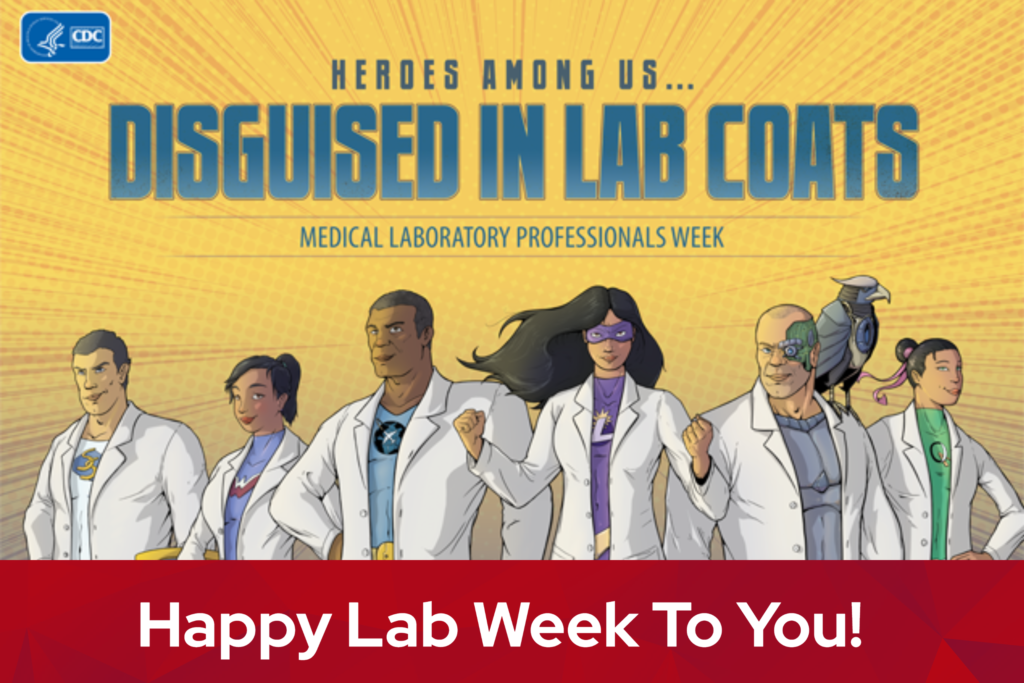
Recognizing our value
We know our value in healthcare. There are statistics and other important information that show the public our impact. What is often even more impactful is sharing why and how we value what we do. When we take time to self-reflect, we strengthen our appreciation for ourselves. If we are able to better express our appreciation, others will appreciate us too.
Reflecting on our growth
You can start this process of self-reflection by thinking about how much you have grown as a laboratory professional. Your education and training have prepared you to perform complex tasks safely. You may look at trainings and courses and think about how they have helped you produce accurate, reliable, and timely results. Reflecting on your commitment to professional development can help you appreciate your contributions. With increased appreciation, you are more willing to share appreciation with others. Sharing your appreciation with the public invites them to recognize and celebrate what you do as a lab professional.
Go ahead, treat yourself
Thinking about the ways you have grown, or how you continue to challenge yourself is a great way to start brainstorming how to celebrate yourself during Lab Week. For example, maybe you helped develop a mentoring program to support new employees and strengthen teamwork. During Lab Week, you could play your favorite cooperative board game with your coworkers to celebrate teamwork. You know yourself best in what gives you a sense of accomplishment and satisfaction. Creating your own personal recognition activity can also support ways to recognize and celebrate coworkers and employees more meaningfully.
The power of employee recognition
When you encourage yourself and others to also celebrate in meaningful ways, you foster authentic connections and help others see their value as team members. In a recent survey on employee recognition conducted by Great Place To Work, 37% of respondents said that more personal recognition would encourage them to produce better work results more often. Neuroscience certainly backs up this statement, with research that illustrates how both predictable and randomized reward systems support happier, more motivated work environments. Below, we provide one example of how you can celebrate yourself in a way that helps everyone see the bigger picture, to see the contributions of laboratory professionals to quality patient care.
Expressing gratitude, expressing value
Practicing gratitude can be a great way to illustrate your unique contributions to quality patient care. For each day during Lab Week, try sharing 1-3 things that you are grateful for as a laboratory professional. Don’t forget, you can include your team members on this list! Write them down on paper, on a whiteboard, or post them on social media, for example. Expressing gratitude is one way you can share your role, experiences, and expertise. Sharing deepens awareness and increases our appreciation of our contributions. This simple practice can generate new perspectives, as you recognize how you personally value the profession. Who knows, you may have a positive experience that will compel your workplace to continue this practice with you, year-round. You may be surprised how simple expressions of thankfulness can inspire others to do their best in the workplace.
Conclusion
Recognition and celebration are powerful motivators that help us feel connected and engaged with our work. How you celebrate Lab Week this year can be a great way to set the tone for how you support yourself, year-round. The more recognition and appreciation we give each other, the more meaningful our celebrations will be. Sharing why you celebrate Lab Week also gives others a closer look at the importance of the medical laboratory profession. WSLH Proficiency Testing is grateful for your dedication and significant contributions to the health and safety of our communities. Happy Medical Laboratory Professionals Week from our team at WSLH PT to yours.
Learn more about Lab Week and download resources on the following websites:
American Association for Clinical Pathology (ASCP): Lab Week (ascp.org)
American Society for Clinical Laboratory Science (ASCLS): Medical Laboratory Professionals Week – ASCLS
American Medical Technologists (AMT): Celebrate Medical Laboratory Professionals Week
WSLH PT Blog
Bringing you clinical lab features, news, and updates via the WSLH PT Blog! If you are interested in receiving an email digest of news along with curated staff picks from around the internet, sign up for WSLH PT’s monthly newsletter, The MedLab Retriever.
WSLH PT Blog
Bringing you clinical lab features, news, and updates via the WSLH PT Blog! If you are interested in receiving an email digest of news along with curated staff picks from around the internet, sign up for WSLH PT’s monthly newsletter, The MedLab Retriever.
WSLH PT Blog
Bringing you clinical lab features, news, and updates via the WSLH PT Blog! If you are interested in receiving an email digest of news along with curated staff picks from around the internet, sign up for WSLH PT’s monthly newsletter, The MedLab Retriever.
What is MTS?
Medical Training Solutions, or MTS, is a program offered by WSLH PT, which originates from the University of Washington. MTS develops and publishes online training and competency courses on a wide range of clinical topics. These topics are appropriate for a variety of educational contexts, including initial training. Educational content includes images, which also may serve as a tool for remedial training. MTS also provides management tools, such as document tracking, email notifications, and kit-specific, point-of-care trainings.
How does MTS work?
Laboratories choose programs from the list of program offerings, and may enroll with their proficiency testing order. Our best enrollment option includes all training and competency programs for 1 year for up to 30 users. The competency programs include 2 different sets of content/per year to meet competency requirements. Our point-of-care training and competency options are popular as well.
You determine the number of users on the account and then enroll. Your account set-up is part of an automated process that allows you to quickly assign one staff member or many staff members to certain selections. Then, staff receives an automated notification by email with the appropriate links to access the materials. The administrator then monitors progress and results. Account administrators can also upload their own tracking documents. CE credits are earned at the completion of the programs.
What are the different types of education provided?
Training programs include items such as Safety, Specimen Collection, Specimen Processing, and all the subspecialties including molecular diagnostics. Competency courses include 10-question multiple-choice tests related to the subject. Microscopy procedures are also available for both training and competency programs. A lecture library series is also available which includes a monthly topic as well as access to archived lectures. Over 50 CE credit hours are available upon completion of these programs, combined.
What are some advantages of using MTS?
The MTS online training and competency coursework is provided as an additional offering to participants. MTS develops programs in response to emergent and trending topics. Some advantages are:
- The programs are also low-cost, especially when multiple staff participates.
- You may order your MTS products alongside your proficiency testing products to make it easier for purchasing.
- You are able to choose programs to meet your needs instead of being unsure of what you will receive.
- Real-time reporting is also available in the competency assessment offerings, which means your score is available to view right away.
Helping you assure your laboratory’s professional training and competency goals is important to us. If you are interested in learning more, you may review our MTS programs on our website, as well as watch a short video tour. A demo account may be requested if you want to see first-hand some of the program content prior to enrolling. Please contact WSLH PT with any additional questions.
If you are interested in reading more related articles about Continuing Education and professional development resources, check out other articles on our blog at wslhpt.org/blog, or sign up to receive this content and more via our monthly e-digest, The Med Lab Retriever.
WSLH Proficiency Testing hopes that you have a great start to 2023 and that you and your staff have everything that you need to support your laboratory’s goals. Thank you for all that you have accomplished in 2022, and we look forward to providing excellent service to you and your laboratory this year.
WSLH PT Blog
Bringing you clinical lab features, news, and updates via the WSLH PT Blog! If you are interested in receiving an email digest of news along with curated staff picks from around the internet, sign up for WSLH PT’s monthly newsletter, The MedLab Retriever.
What policies and processes are in place in your laboratory? In preparation for a laboratory inspection, this is the question you have at the forefront of your mind. We also have this question at the forefront of our minds too, but for different intentions and outcomes. A proficiency testing provider may experience a routine audit, as well as annual reviews of accepted analytes conducted by an accreditation agency, such as those conducted by the College of American Pathologists (CAP). The purpose of a proficiency testing audit is to provide you with the best experience when it comes to participating in our proficiency testing services. These processes of review and approval assure that you can use our proficiency testing services alongside your accreditation agency. In this article, we share with you an overview of the auditing process, and how it impacts you, the clinical laboratory.
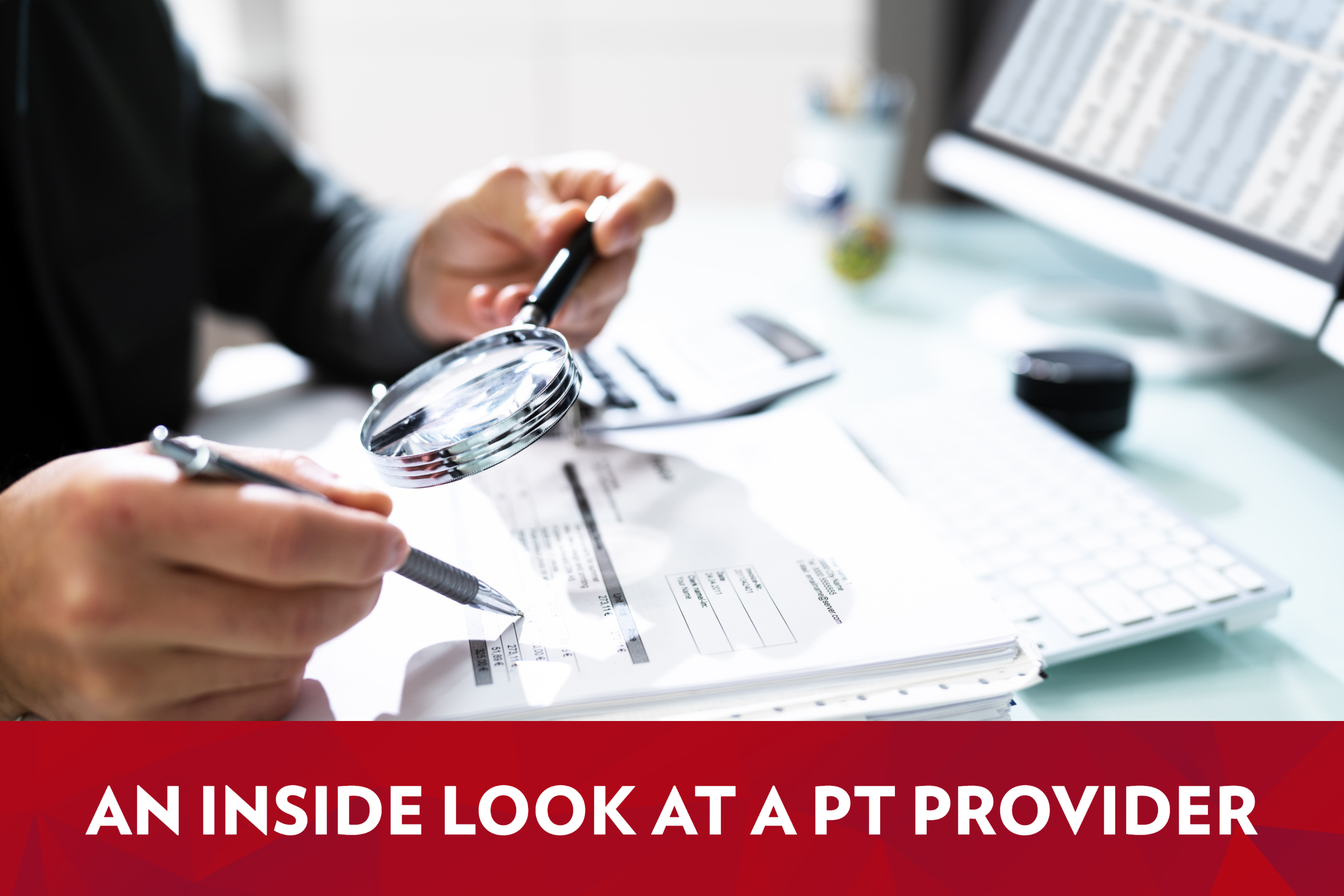
An Inside Look at a PT provider
The Clinical Laboratory Improvement Amendments (CLIA) of 1988 are today’s standards for compliance and accreditation. Following the passage of CLIA ’88, laboratories that are reporting clinical results are mandated by law to attain CLIA certification with CMS. All CLIA-certified labs are also required to perform proficiency testing on regulated analytes with any CMS-approved proficiency testing provider. Accreditation agencies are approved to act on behalf of CMS as an accrediting body. In response, the College of American Pathologists, developed a routine process as an accreditation agency to accept PT providers. This process assures that any CAP-accredited laboratory may enroll with any PT provider that meets CAP’s requirements regarding the acceptability of materials, scoring processes, and transmission of data. Today, when CAP-accredited laboratories are choosing a PT provider, they are determining if the PT provider and the analytes they need are accepted by CAP.
In order for WSLH Proficiency Testing to be a CAP-accepted PT provider, CAP representatives audit WSLH PT services every 3 years. During the auditing process, WSLH PT shares data with CAP from laboratories that choose CAP for accreditation. The following are the kinds of questions WSLH PT answers in a CAP audit:
- Are laboratories getting the information they need?
- Is the information presented in such a way that is easy to understand?
- Does the PT provider maintain consistency in how their technical coordinators evaluate data?
CAP representatives conclude the audit by visiting our office at the Wisconsin State Lab of Hygiene in Madison, Wisconsin. This day-long visit includes a shared review and discussion of key findings in data. Review and discussion of data offer insights into issues that laboratories may be encountering throughout the proficiency testing process.
All regulated analytes that CAP-accredited laboratories select from a PT provider must pass through an annual approval process to be CAP-accepted. If an analyte is CAP-accepted, then CAP will accept the score transmission of a CAP-accredited laboratory from the PT provider. Every year PT providers have the opportunity to apply for CAP acceptance for an analyte by filling out a form and submitting it by July for potential approval the following year. At the very minimum, PT providers must have 20 data points for three events in a row for quantitative analytes. For qualitative analytes, PT providers need 10 data points for three events in a row. Beyond the review of grading data, there are other criteria that CAP uses in determining the acceptability of regulated analytes. The other information that CAP requests from PT providers include, but are not limited to:
- Instrumentation, methods used, and number of participants
- Participant summary data for events
- Number of challenges and shipments per year
- Supporting documentation for analyte specifications and event data
- A statement that all material vendors comply with specified product manufacturing standards
Not all regulated analytes offered by PT providers are approved by CAP; so, laboratories that want to use their materials to meet CAP’s accreditation requirements must first check with the appropriate PT providers. If you review WSLH Proficiency Testing’s clinical product catalog, you will see that any analytes that are not accepted by CAP are noted with an asterisk (*). When CAP-accredited laboratories approach WSLH PT to enroll, they know which analytes will meet their regulations with the CAP Laboratory Accreditation Program.
Routine audits and annual analyte acceptance conducted by CAP assure that we can serve and provide options to CAP-accredited laboratories. Aligning our services and processes with the CAP Laboratory Accreditation Program not only benefits CAP-accredited laboratories but all clinical laboratories that enroll with WSLH Proficiency Testing. Whether or not CAP is your accreditation agency, the findings we review in a CAP audit help us assure that our materials, from general instructions to evaluation reports and policies, are accurate, clear, and concise for all laboratories. This inside look into our partnership with CAP provides some insight into how we pursue collaboration, usability, and continual development to lay a solid foundation for laboratory improvement.
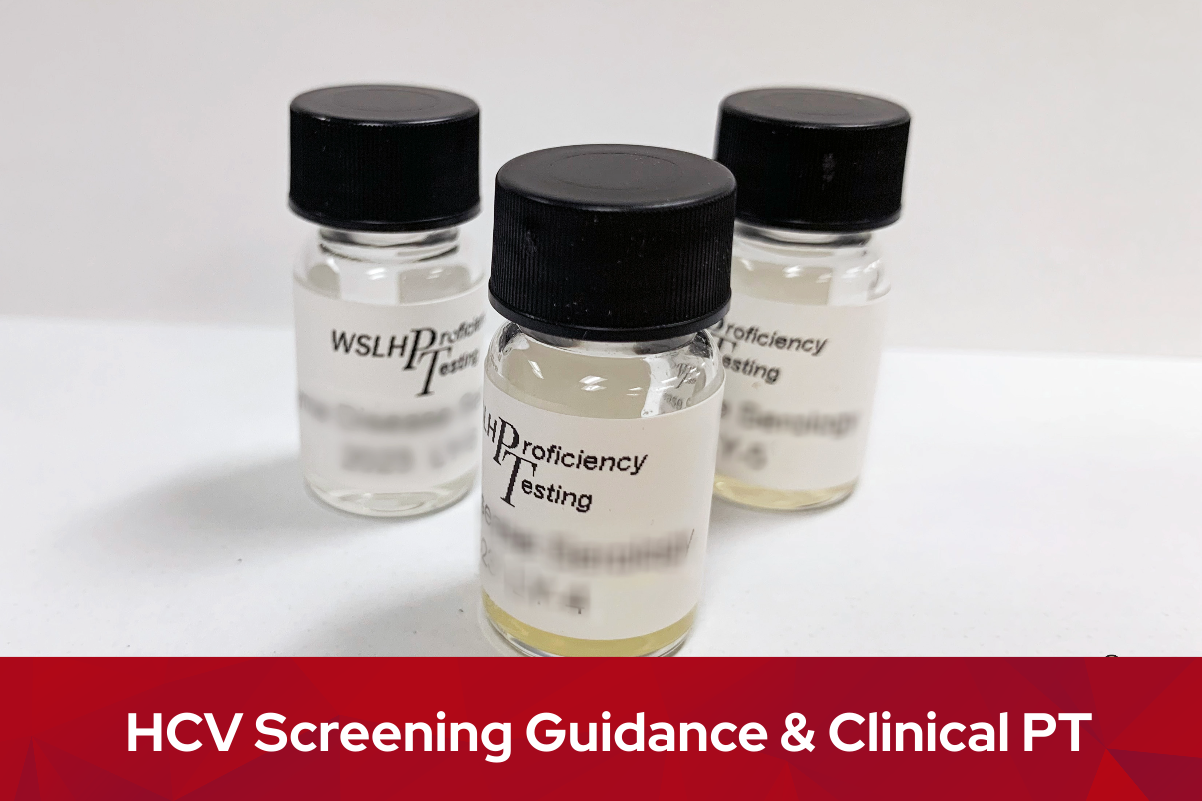


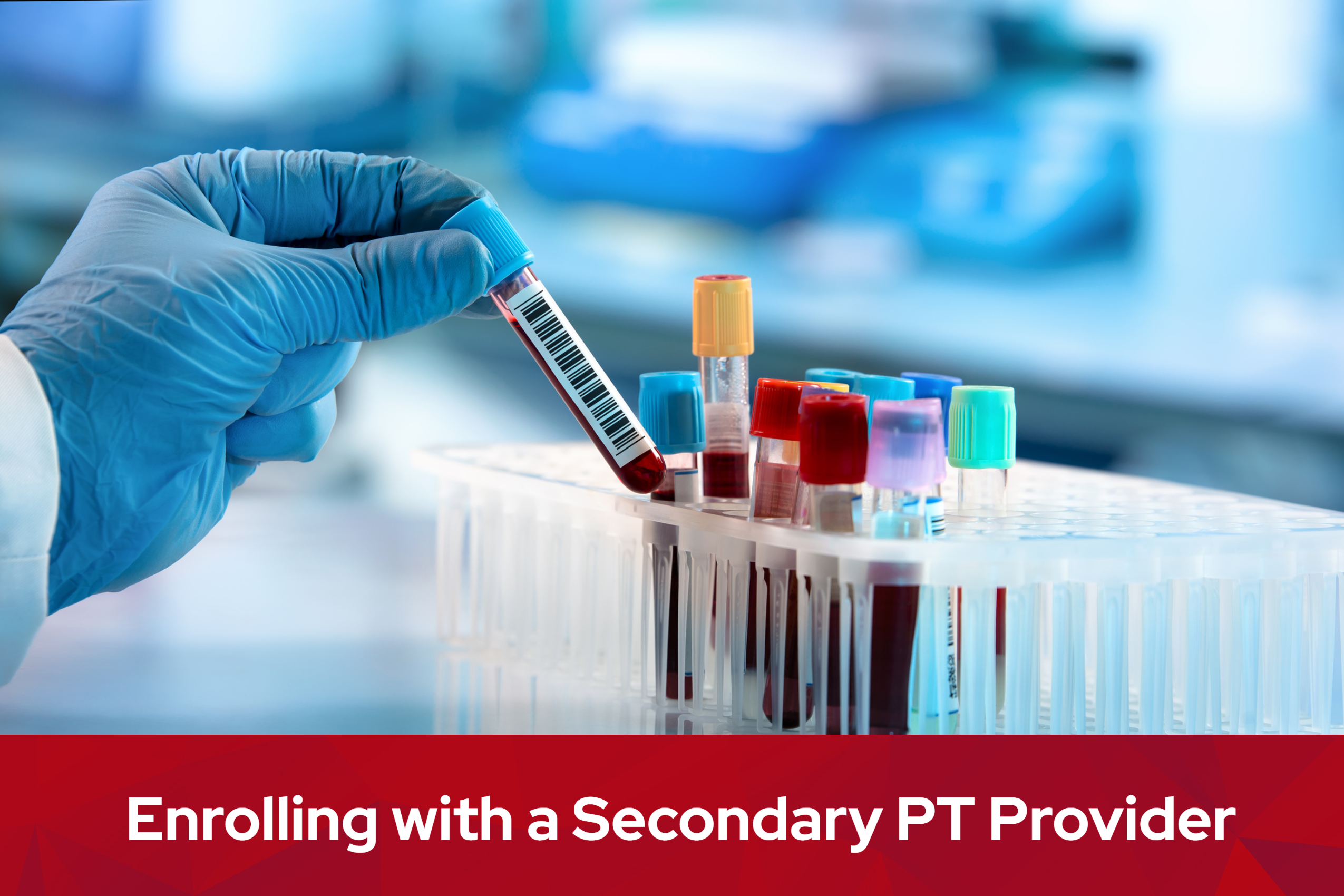




 Serving in a rural hospital gave Vicky a fairly unique career trajectory to her role today. From drawing blood to managing the front desk, Vicky eventually found her own cadence in this unique position of being both a laboratory manager and a regulatory compliance professional. She also has a lengthy list of unexpected responsibilities, such as overseeing the occupational medicine department and contracted services, like food and nutrition and the sleep lab.
Serving in a rural hospital gave Vicky a fairly unique career trajectory to her role today. From drawing blood to managing the front desk, Vicky eventually found her own cadence in this unique position of being both a laboratory manager and a regulatory compliance professional. She also has a lengthy list of unexpected responsibilities, such as overseeing the occupational medicine department and contracted services, like food and nutrition and the sleep lab.
